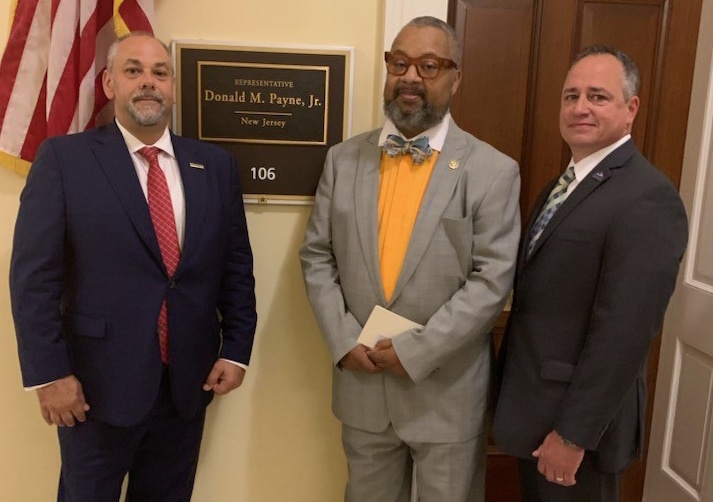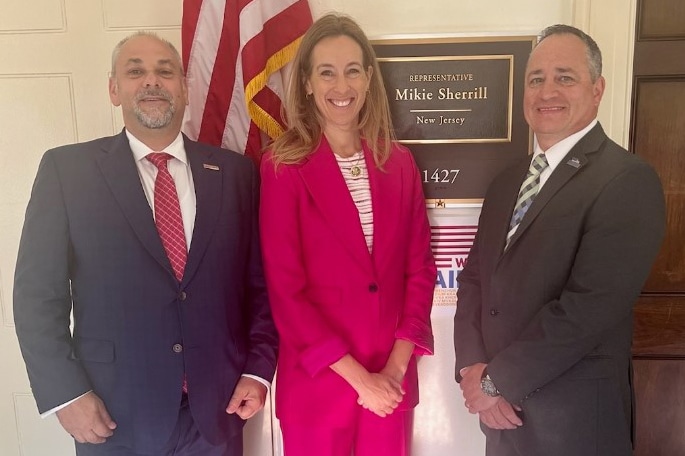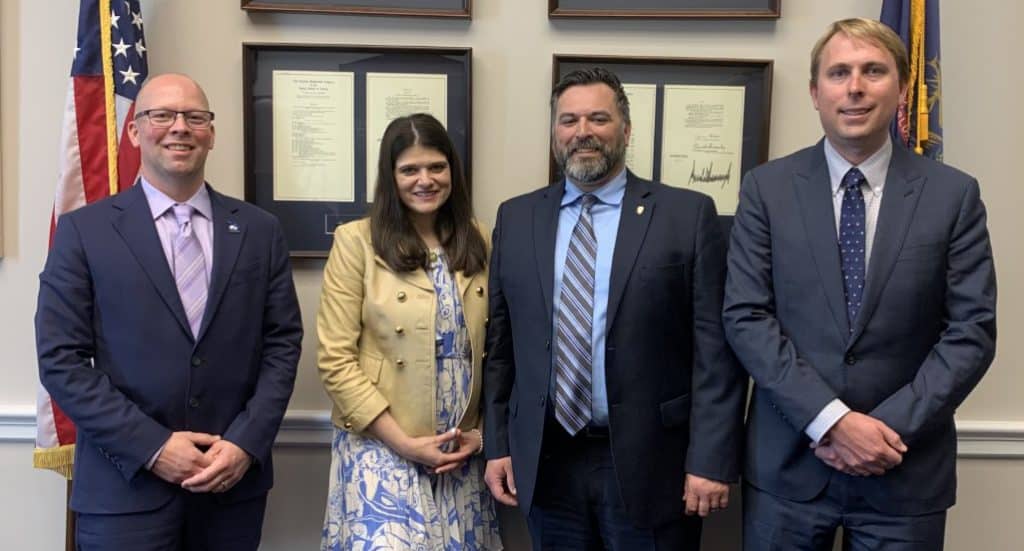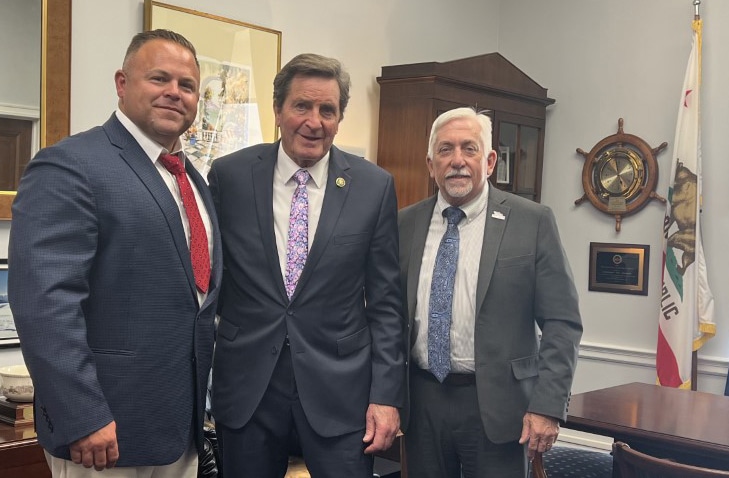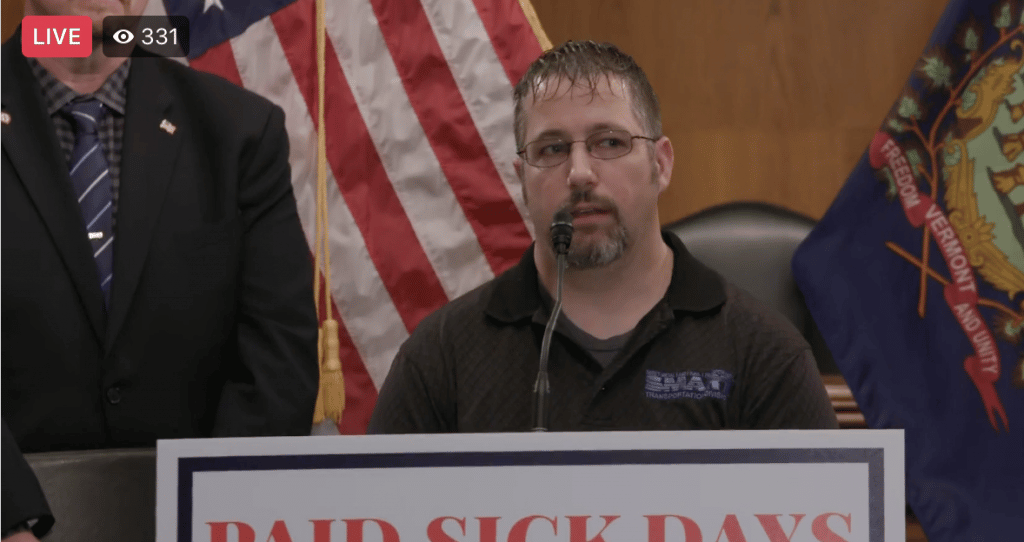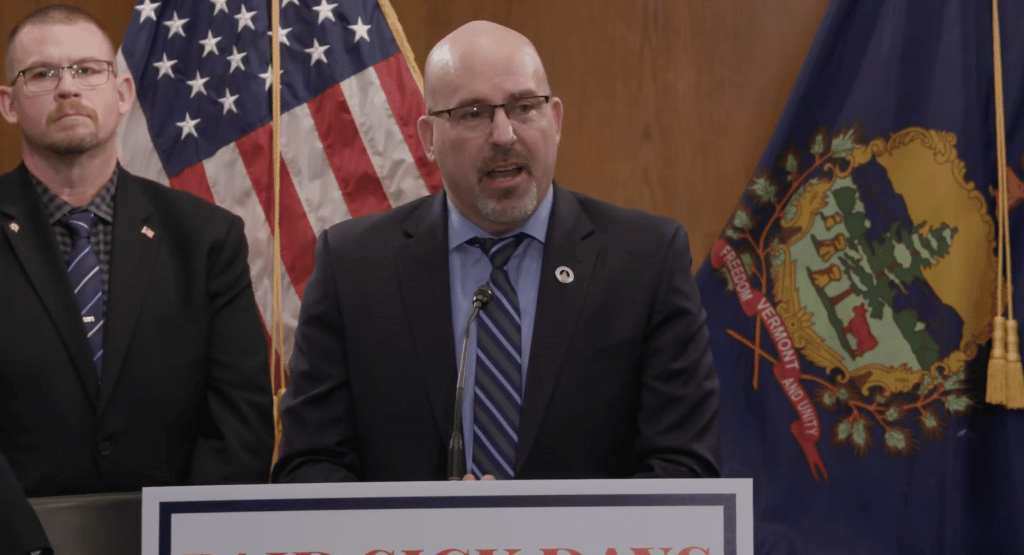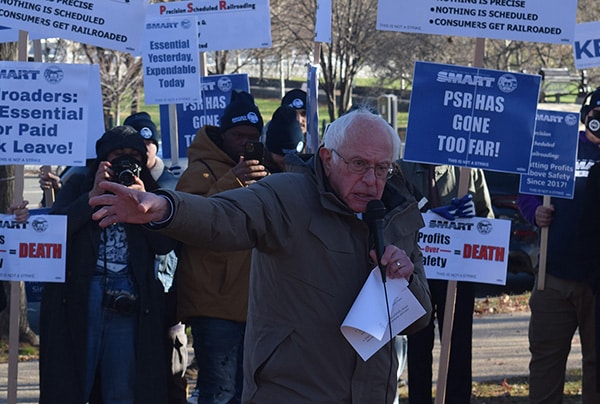With daily headlines nationwide about railroad safety legislation, it has come to feel like every day is “Railroad Day on the Hill.” However, the event is formally held once a year on the legislative calendar for representatives from rail unions and rail carriers alike to descend on D.C. to discuss the issues that face our industry.
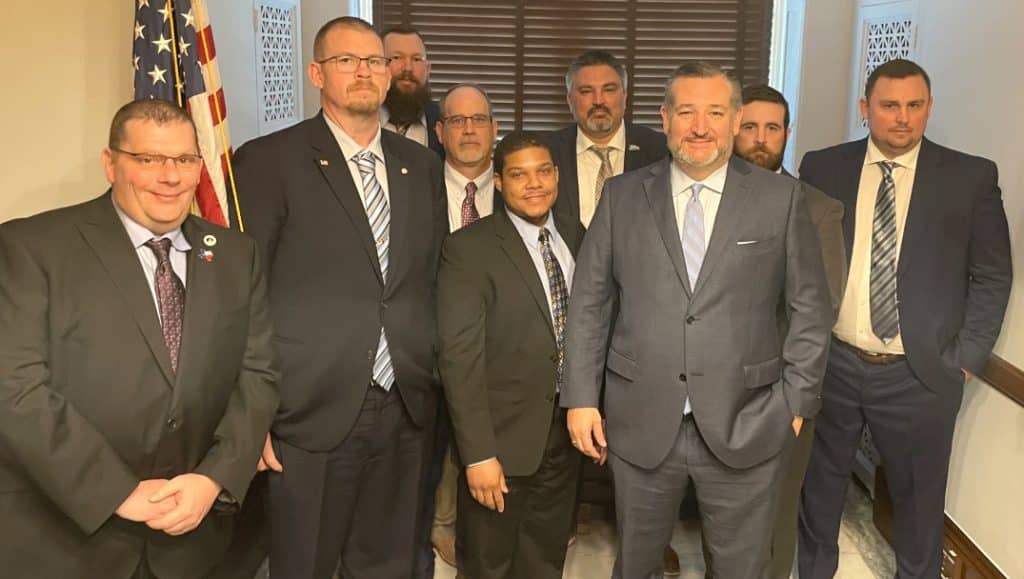
Under normal circumstances, building relationships with the 535 members of Congress falls on SMART-TD’s staff of three in our Washington D.C. National Legislative Department, but on May 17th’s Railroad Safety Day, plenty of reinforcements within our union marched forth to lead the effort with other labor groups.
This support came in the form of 35 men and women representing 15 different states. State legislative directors, vice state legislative directors, general chairpersons, local legislative reps and state legislative vice chairs from across the country answered the call to help SMART-TD National Legislative Director Greg Hynes, Alternate National Legislative Director Jared Cassity and Legislative Department Chief of Staff, Jenny Miller educate our nation’s lawmakers on rail safety.
This formidable group of SMART-TD representatives was not in D.C. as tourists. Between the group of attendees, they held over 100 meetings with legislators sharing the gospel of the Railway Safety Act of 2023, shorter trains, increased quality of life and better safety inspections of rolling stock with any Congress member or staffer willing to listen.
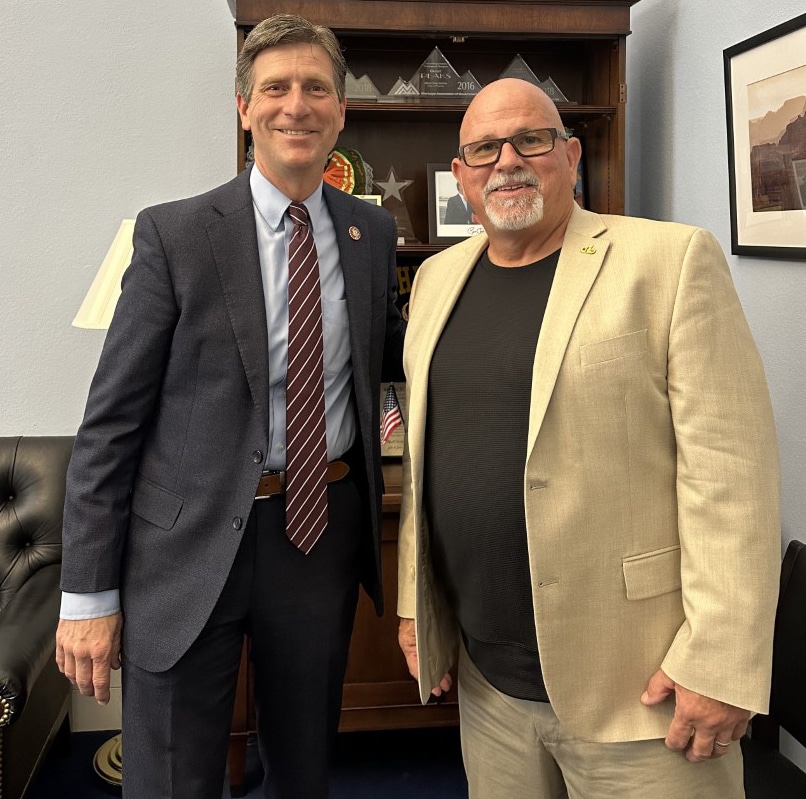
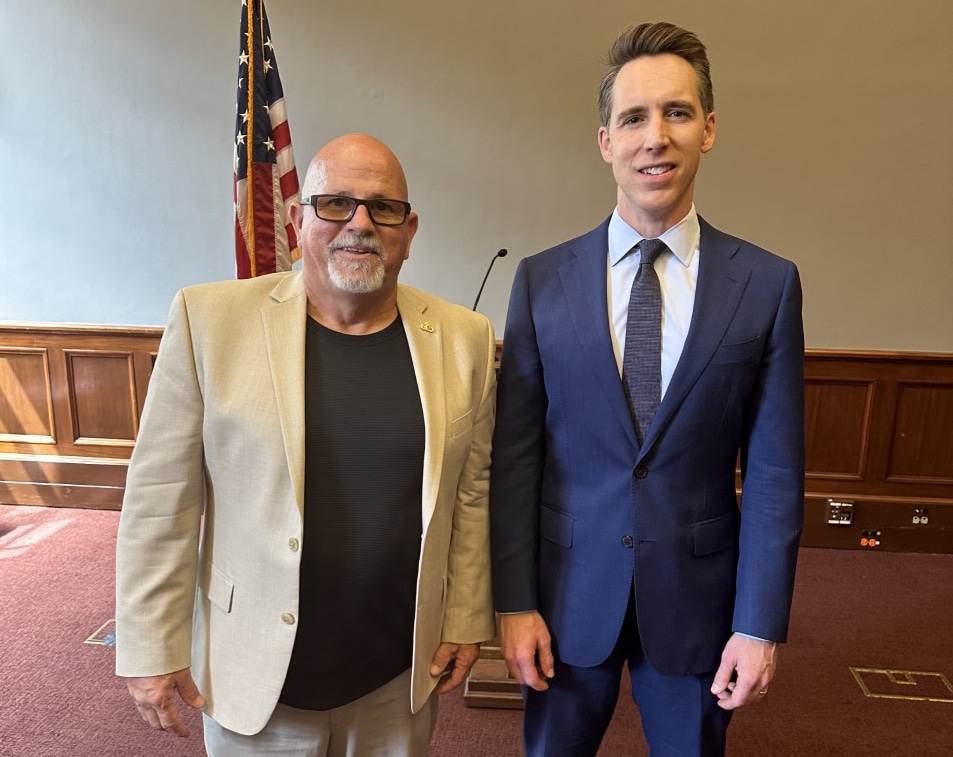
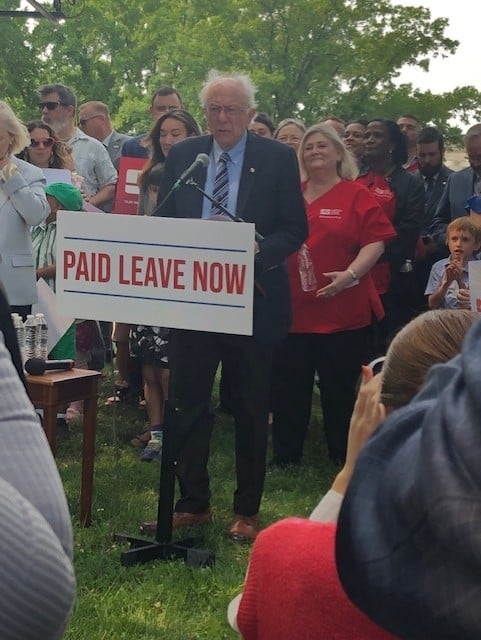
In addition to holding this important series of meetings and reaching out to over 100 members of the House and Senate, SMART-TD representatives attended a press conference in support of U.S. Sen. Bernie Sanders (I-Vt.) as he announced his legislation known as the Healthy Families Act. This legislation includes provisions ensuring that every company with over 100 employees provides a minimum of 7 paid sick days to its employees. This bill has language in it that speaks directly to railroad companies.
This bill indicates the progress our union made in the 2022 national contract negotiations. In December 2022, Sanders pushed for similar legislation that was strictly aimed at railroaders and though it won a majority of votes in both the House and Senate, it failed to get the 60 votes it needed to carry a filibuster-proof supermajority and make it to President Biden’s desk to be signed into law.
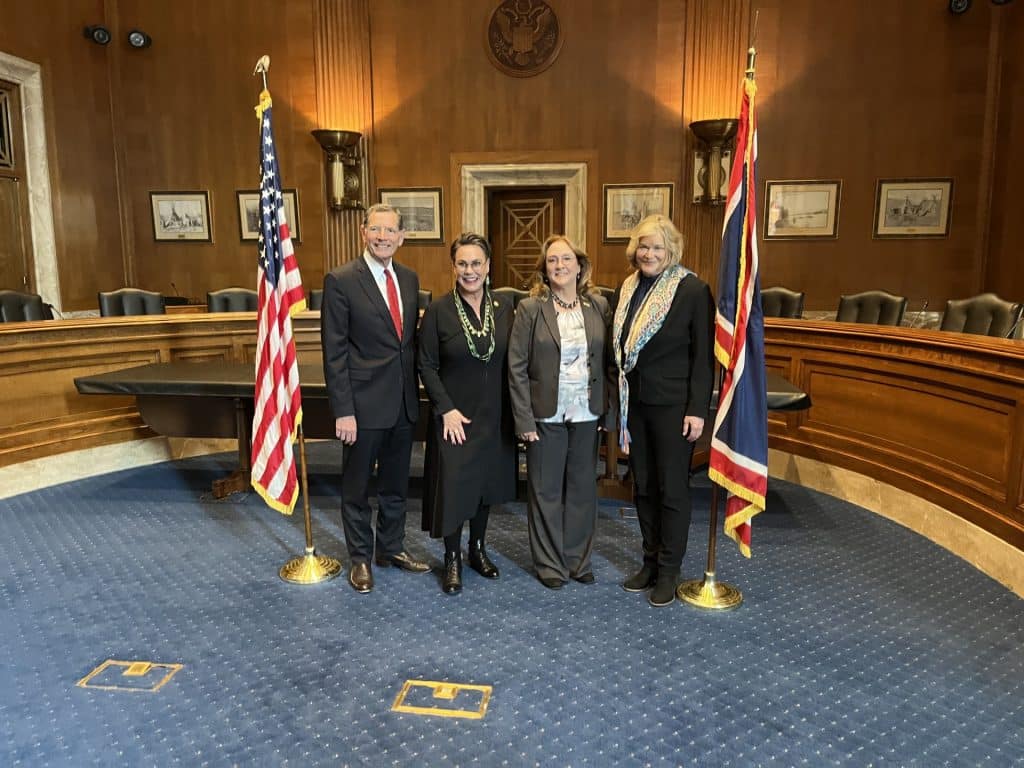
With the ramifications of this bill’s success weighing heavily on the quality-of-life improvements that SMART-TD continues to seek for our members, Sen. Sanders reached out to SMART’s Legislative Department and made a point of inviting our representatives to his press conference.
Following the successes of the day’s events, NLD Hynes expressed his gratitude to the army of SMART-TD leaders who made the trip.
“These men and women went above and beyond the call of duty to be here today, and because of them, we had a fantastic show of force in the halls of Congress. The validity of our issues speaks for itself, but when leaders from these different states show up to meet with their congressional and senate delegations it makes an impact on these lawmakers,” he said. “They hear from Jared Cassity and me all the time, but when someone from home comes to meet with them in D.C., it puts a face to our issues in a unique way.
“I want to thank each and every one of them for making the effort to come out this year, and with your help, we will deliver on the promise of the Railway Safety Act, the REEF Act, and all the issues that speak to the quality of life our members deserve and the dignity of the work they do each day.”
